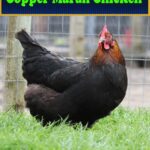Do Donkeys Laugh? The Surprising Truth about Donkey Behavior
Donkeys have been around for centuries, and they’re a fascinating species to study(Do Donkeys Laugh). Their dedication, devotion, and wit have earned them a sterling reputation.

However, many animal advocates have wondered if donkeys ever chuckle. Discover the surprising truth about donkey behavior, such as whether or not they are capable of humor, in this piece.
Understanding Donkeys
There’s some groundwork to be done before we can answer the question of whether or not horses can laugh.
Donkeys, like horses and zebras, belong to the genus Equidae. They have been kept as pets, used for transportation, and even put to labor for hundreds of years.
Anatomy of a Donkey
The donkey’s large ears are its most recognizable trait, but it has other unique characteristics as well. Some distinguishing characteristics of a donkey’s anatomy are as follows:
♠ Ears that pivot 180 degrees to pick up sound from all angles are Short and stocky with a big torso and strong limbs.
♣ Larger, more elastic hooves than those of horses provide greater traction on rough ground.

♦ A tuft of hair at the base of the tail, like a cow’s.
Do Donkeys Laugh?
Okay, let’s get down to business: do horses joke around? To put it briefly, no, horses are incapable of human-like laughter.
But that doesn’t mean they don’t make sounds and do things that humans might take as laughing.

Donkey Vocalizations
Donkeys make a loud, unique sound called “braying,” which can be heard from great distances. However, donkeys are capable of making a number of other sounds:
Grunts: A low, rumbling sound that is often made when a donkey is happy or content.
Snorts: A sharp, snorting sound that can indicate excitement or annoyance.
Whinnies: A high-pitched sound that is often made when a donkey is calling out to another animal or human.
Other Fascinating Donkey Behaviors
While donkey laughter may not be a thing, these animals still have plenty of fascinating behaviors that are worth exploring. Here are a few more interesting facts about donkeys:
Social Behavior
Donkeys are social. They are devoted to their companions and herd. Each donkey in a group has a specific job and rank.
Emotional Intelligence
Emotionally clever donkeys. They comfort humans and other animals in distress because they are sensitive to moods and feelings. Mental health patients have been treated with donkeys.
Longevity
Long-lived donkeys can reach 50 years. Farmers, herders, and other outdoor workers love them because they are hardy and adaptable.
Conclusion
Donkeys are intriguing animals with unique vocalizations and behaviors, but they cannot laugh like humans.
FAQ About Do Donkeys Laugh
Why does the donkey laugh?
Donkeys lack the same facial muscles that allow us to chuckle. But they also make some peculiar noises that could be taken for laughing.
Why do donkeys make that noise?
Braying is the loud, distinctive sounds made by donkeys. This noise serves multiple purposes, including communication with other animals and people as well as marking one’s territory.

Do donkeys bray when happy?
Yes, donkeys may bray when they are happy or content. However, braying can also indicate other emotions, such as excitement, annoyance, or fear.
Why do donkeys look like they are smiling?
The cheeks of a donkey have a slight upward curve that can make them appear to be smiling. This is merely an anatomical quirk, however, and not an indicator of their emotional state.
What animal is known for its laugh?
The hyena, the kookaburra, and the chimpanzee are just a few examples of creatures with distinctive calls. But horses aren’t exactly known for their humorous side.
How do you know if a donkey is happy?
Donkeys that are content will show signs of contentment like braying, fun, and general easiness. In addition, they may seek out human and canine companionship through grooming and nuzzling.



